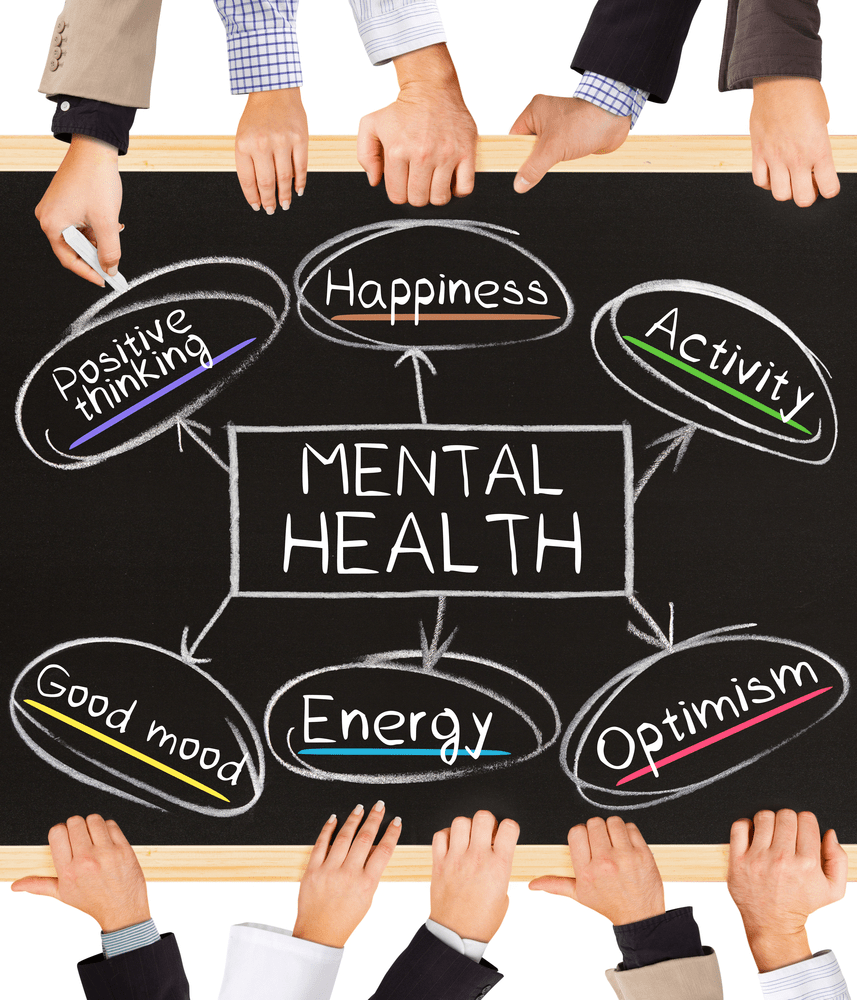Strategies for Maintaining Mental Health
Nowadays it’s so common to hear mental health problems like anxiety and depression affecting people. In every household, every member of the family is experiencing stress of some kind, and currently, stress levels are more in people because of health, work, and other personal problems.
It is essential for every human being to have and maintain positive mental well-being. It is important to learn about mental illnesses or disorders to keep them at bay and spread awareness of mental health. Thankfully, there are many effective, affordable, and feasible strategies for maintaining mental health and even promoting, protecting, and restoring mental health.
This article is about mental health, its importance, and strategies for maintaining mental health. In the end, there are mental health expert answers to the most frequently asked questions on mental health.
What Is Mental Health?

Mental health comprises one’s thinking, feelings/emotions, or behaviour. In other words, it includes one’s psychological, emotional, and social well-being. According to the World Health Organisation (WHO), mental health is defined as: “A state of mental well-being that enables people to cope with the stresses of life, realize their abilities, learn well and work well, and contribute to their community.”
Mental health plays a significant role in every life phase, from childhood and adolescence through adulthood and old age. Along with physical health, mental health is integral to the overall well-being of an individual.
Mental health is dynamic and keeps changing over time. The change in one’s mental health depends upon various factors. For instance, if a person is demanded for things that are beyond the availability of resources and coping abilities of a person then the person’s mental health would be affected.
Why Is Mental Health Important?

Mental health is important for overall health and better life quality. Good mental well-being offers many benefits, including:
- Better clarity of thought
- Reduced anxiety
- Improved spirits
- Better interactions with others around
- Increased one’s inner peace
- Boost in self-esteem
- Helps in dealing with stressful or challenging situations
- Helps in making difficult decisions.
Therefore, everyone needs to learn about strategies for maintaining mental health.
What Factors Can Harm Mental Health?

Various factors can pose a negative influence on mental health and stability. These include:
- Discrimination
- Severe stress and/or prolonged stress
- Past trauma, mental abuse, or neglect
- Social disadvantages
- Unemployment
- Dysfunctional family life
- Social isolation or loneliness
- Bereavement
- Long-term physical illness
- The breakup of close bonds with loved ones.
To avoid such negative influences and improve mental fitness, there are some strategies for maintaining mental health discussed further.
What Are The Strategies For Maintaining Mental Health?

As general wellness is possible only with good mental health, few lifestyle changes or introductions to a daily routine are important. Mental health stays with one throughout life and therefore one must make consistent efforts to improve it. Some of the strategies for maintaining mental health and improving mental fitness include:
- Doing regular workouts: These include any activities that increase heart rate and heat the body to stay physically active. To enjoy substantial mental health benefits, adults should exercise daily of moderate intensity for 20 minutes. The inclusion of exercise like walking, swimming, and cycling can also enhance the blood flow to the brain. Moreover, studies show that a regular workout releases the “feel-good” hormone that reduces stress and improves mood. It is one of the best strategies for maintaining mental health
- Practising meditation or mindfulness: Meditation can help control the mind and give a sense of calm, mental peace, and balance. It can even be done to cope with stress by focusing on something more relaxing and calming. Mindfulness meditation happens in a good sitting place by paying attention to breathing and getting the mind to focus on the body without getting overwhelmed or overactive by what’s happening around. A strong mental resilience is developed by practising meditation, which enables one to face life’s challenges. Practising meditation or mindfulness creates a harmonious synergy between the mind and the body.
- Prioritizing proper daily sleep and rest: Sleep protection is the most important intervention to upkeep mental health. A good amount of sleep at night, following a proper sleep schedule, and good sleep hygiene habits can help foster emotional and mental resilience. If there are sleep disruptions in the long term, there are increased chances of having negative thinking and becoming emotionally weak or vulnerable. A few factors are necessary to be endorsed in daily routine for proper sleep and rest, including limiting screen time before bed and avoiding alcohol and caffeine close to bedtime, as they can disrupt sleep quality.
- Being in touch with loved ones: Maintaining familial or personal bonds, connecting with others sharing things, and learning expression are important. Having a good connection with our loved ones can help reduce stress and pain. Studies show that spending time with loved ones can aid in mental illness and stress. It is one of the best strategies for maintaining mental health
- Learning or developing coping skills to handle life challenges: These include learning tactics to deal with stressful life situations. Examples are regular physical activity; establishing and maintaining boundaries; making to-do lists and setting short and long-term goals; and practicing relaxation techniques such as mindfulness and deep breathing. Cheering yourself up in the completion of these small-term goals while aiming for the long term is also necessary. It is also essential to define the limits and to do them appropriately, which prevents burnout.
- Maintaining a positive life outlook: Positive thoughts can help reduce stress and risk of depression, provide one with a better sense of general wellness, and improve one’s problem-solving skills. As it is said that having a positive mindset eases problems, focusing on the solution rather than on challenges, these thoughts only come when one is positive and in a reasonable frame. So optimistic thoughts improve well-being and mental health.
- Working in social situations: Human-human interactions are an outlet for sharing feelings and thoughts. Whether it’s social work, a community centre, or any public gathering place, humans can feel free to communicate with others to impact their mental well-being positively.
- Seeking therapies: Talk therapy can teach one a healthier way to interact with others and even coping mechanisms to overcome hardships in life. Therapies can even address bad behaviours and provide tools to make life better. It is one of the best strategies for maintaining mental health
- Practising yoga or other low-impact exercises: Many yoga poses or asanas, including pranayam (restraint breathing), can help maintain mental health. Practising yoga and including it in the daily routine helps physical well-being and improves mental calmness and peace. It promotes a sense of mindfulness and presence, allowing individuals to disconnect from worries.
- Having nutritious meals daily: If one has good eating habits, one’s mood remains good all day long. Therefore, one must have meals containing a balance of all nutrients like protein, simple carbohydrates, non-saturated fats, and dietary fibers, as well as water. The food must be taken in small portions frequently at the right time to maintain mental health and overall well-being.
- Taking guidance from a health professional: A health professional can thoroughly check mental conditions and suggest appropriate unique solutions to improve or maintain mental health.
- Find a hobby: If one indulges in any pleasurable and enjoyable activity, one’s brain releases neurotransmitters that help one fight stress and anxiety. Healthy habits and finding a hobby prevent worries and negative thoughts. It also manages stress and acts as a stress reliever.
FAQs:
How does social media affect mental health?
Social media can influence mental health both positively and negatively. It can enable an individual to communicate and stay updated with what’s happening around the world, build social networks with people, seek emotional support during tough times, discover sources of information, and learn with care. Social media can even lead to negative experiences such as an increased risk for anxiety, loneliness/isolation, self-harm, depression, and even suicidal thoughts.
How does exercise improve mental health?
Exercise offers many benefits both physical and mental. An active, sound body and mind are possible by regularly exercising. In terms of mental well-being, exercise can help to lighten the mood- by causing the brain to release feel-good chemicals such as serotonin and endorphins, lift the mood by improving physical fitness, making one distracted away from negative thoughts, boosting memory, reduce stress levels, recover fast from mental illnesses, and lessen symptoms of mental health issues like anxiety, depression, or schizophrenia. Thus, exercise is one of the best strategies for maintaining mental health.
How does sleep affect mental health?
Sleep and mental health are closely related to one another. A poor sleep schedule or lack of sleep can have a negative effect on mental health. It can lead to a worried feeling or stress, anxiety, depression, or suicidal thoughts, psychotic episodes- mania, paranoia, or psychosis, loneliness or isolated feeling, lack of energy or irritable feeling, difficulty in concentrating or decision-making, issues in daily life- at work or with family and friends, and other mental health problems.
Is mental health a disability?
Mental illness is the cause of a disability. It refers to diagnosed conditions that affect the thoughts, mood, and behavior of an individual. The mental illnesses that can be considered a disability include anxiety and depression, psychotic disorders, neurocognitive disorders, obsessive-compulsive disorders, personality, and impulse control disorders, eating disorders, neurodevelopmental disorders, and trauma and stress-related disorders. Whether you are having a disability or not, you must follow strategies for maintaining mental health.
Is autism a mental health disorder?
Autism is not a mental health disorder but those who are autistic are likely to experience mental health issues such as learning disabilities, dyslexia, attention deficit hyperactivity disorder, anxiety, and depression. If autism has led to any mental health issue, one must switch to strategies for maintaining mental health to ensure good mental health.
References:
- https://www.medicalnewstoday.com/articles/154543
- https://www.who.int/news-room/fact-sheets/detail/mental-health-strengthening-our-response
- https://www.cdc.gov/mentalhealth/learn/index.htm
- https://www.medicoverhospitals.in/articles/importance-of-mental-health
- https://adaa.org/learn-from-us/from-the-experts/blog-posts/consumer/top-5-strategies-cultivating-your-mental-health

